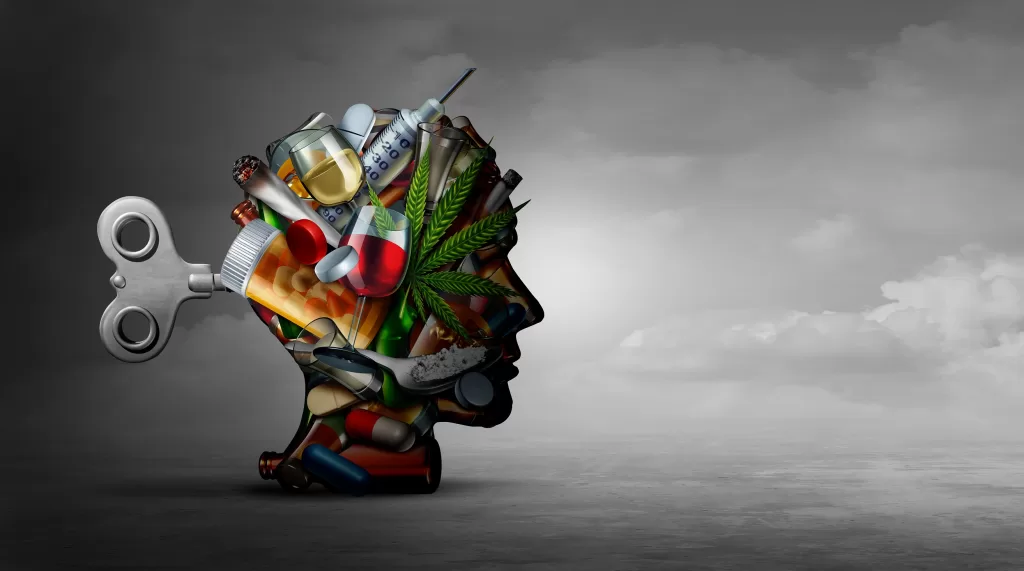Understanding Substance Abuse

Substance abuse is using alcohol, a drug, or another substance for a non-medical purpose to produce a mind-altering state in the user. Substance abuse refers to the abuse of alcohol or illegally made substances or the use of legal medications for a different purpose than the one they are meant for. In most cases, the substance in question is used in excessive quantities.
Addiction is a state of physical and psychological dependence on a substance. Physical addiction causes tolerance to the substance. You must use more drugs or medicine to get the same effect. As a result of addiction and tolerance, withdrawal symptoms emerge when the user stops taking the drug. These symptoms disappear when the user resumes taking the drug or increases the amount.
Drug abuse involves not only illegal drugs such as heroin, cannabis, cocaine, or ecstasy but also prescription medication such as tranquillizers, analgesics, painkillers, and sleeping pills. Even medicines that can be bought over the counter or off the shelf are resorted to, including cough mixtures or herbal remedies. Alcohol can also be abused, and professionals in the healthcare field are becoming more and more worried about alcoholism and alcohol addiction.
Risks of addiction
Drug or alcohol abuse has a significant number of associated risks. Some of these include:
- Threat to personal safety (danger of death or injury as a result of an overdose, accident, or aggression)
- Damage to health (including brain damage, liver failure, mental problems, etc.)
- Problems with the law (risk of imprisonment, fines, and criminal record)
- Destructive behaviour (self-harms and harm to family and friends)
Drug or alcohol dependency is a common cause of financial problems and difficulties at work or school. Often, addicted people resort to lying or stealing to feed their habit. As a result, they can lose the support of friends and family. When addicts fail over and over again to control their drug or alcohol use, they may feel ashamed and guilty. Yet, despite all these difficulties, people who are addicted frequently deny they have a problem.
Denial
Despite all the negative effects, people who abuse drugs or alcohol are driven to their addiction and tend to deny that they have a drug problem or that drugs harm themselves or others. Some even believe that they do not have a problem at all. This subconscious denial is one of the effects of dependency or addiction. Rehabs such as Hope Trust have protocols designed to break this denial so that recovery can begin.
Addiction and mental health
People with bipolar disorder, schizophrenia, or ADHD are also more likely to abuse alcohol or drugs and are at a higher risk. Therefore, it is essential when treating patients to use substances to treat the underlying condition. It is a key to treating alcohol abuse simultaneously. When addiction is coupled with a mental health issue, it is called a dual diagnosis.
Scientific evidence indicates that certain people may be at an increased risk of alcohol or drug abuse and addiction. These people have inherited a predisposition to addiction from their parents. But social pressures and other outside things like stress, poverty, and illnesses can also play a big part. Peer pressure, emotional distress, and low self-esteem can lead people to abuse drugs. Having easy access to drugs may also be a contributing factor.
When addicts fail over and over again to control their drug or alcohol use, they may feel ashamed and guilty.
Suppose a person abuses a drug to feel better or to cope with a problem. In that case, they will likely start relying on drinking or drugs to avoid uncomfortable feelings or situations. They may lose or never learn the skills that are necessary for them to cope with life.
The recovery program at Hope Trust is holistic: addressing issues such as low self-esteem, emotional instability, eroded value systems, and broken relationships.
Click www.hopetrustindia.com for an online or in-person appointment with an addiction therapist.